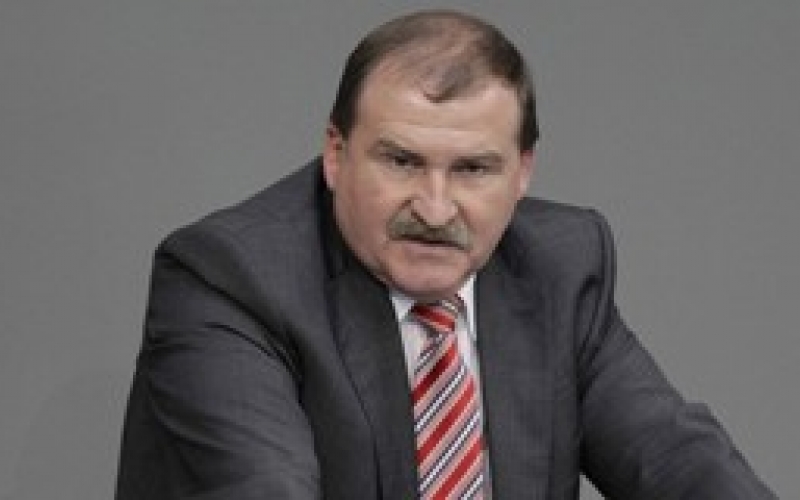
His statement reads: “It is clear to the CSU regional fraction of the German Parliament that the respect for International Law as well as for the territorial integrity of states are not to be doubted. Resolutions of the United Nations Security Council have to be followed. So it is out of question that the occupation of Azerbaijani territory against international law has to be ended and the refugees have to be enabled to return to their home. A peaceful settlement of the conflict will contribute to a stabilization of the entire region.”
“The talks in in the framework of the so called OSCE Minsk Group, that started in 1992, revealed a reasonable way for a peace treaty (Madrid Principles), based on the pillars of territorial integrity, peaceful conflict settlement and the right of nations of self-determination. Regrettably, there has been no progress for a considerable time within these talks - in April 2016 there has yet again even been an eruption of violence with lots of civilian casualties on both sides. We explicitly deplore and condemn this escalation - especially the civilian victims.”
“In the perception of the CSU regional fraction, Germany -as current OSCE-chair- bears the responsibility to go to any lengths to prevent any resurgence of the conflict and pursue the path leading to peace. Therefore we require a consolidated cease-fire, confidence-building measures and an initiation of negotiations. The German Government is campaigning for the accomplishment of these targets, too: Foreign Minister Steinmeier travelled to the South Caucasus for political talks recently. On the occasion of the opening of the OSCE Parliamentary Assembly’s annual conference in Tiflis on July 1st 2016 he correctly emphasized that swift and surprising solutions for deadlocked conflicts in the OSCE area are rarely expectable. However, Germany is trying to gradually build a minimum of confidence between the parties and to ease the everyday life of the population on-site.”
“The Foreign Minister assured that Germany will endeavor intensively to raise the team size of the special representative mission of the OSCE for the Nagorno-Karabakh conflict, establishing a mechanism of investigation for military incidents and stabilizing the cease-fire by further measures, e.g. with enhanced monitoring. Then, it will be possible to take first steps in serious negotiations. Furthermore, Germany strives to revive and intensify negotiation formats and channels like the OSCE Minsk-Group, not for cementing the status quo but for achieving progress in the conflict settlement process. This two-way approach is supported by the CSU regional fraction. However, the role of the opposing parties will be crucial: They have to renounce any escalation and must not set too many insuperable prerequisites for an admission of negotiations - otherwise a real negotiation progress is impossible.”
Views: 179
